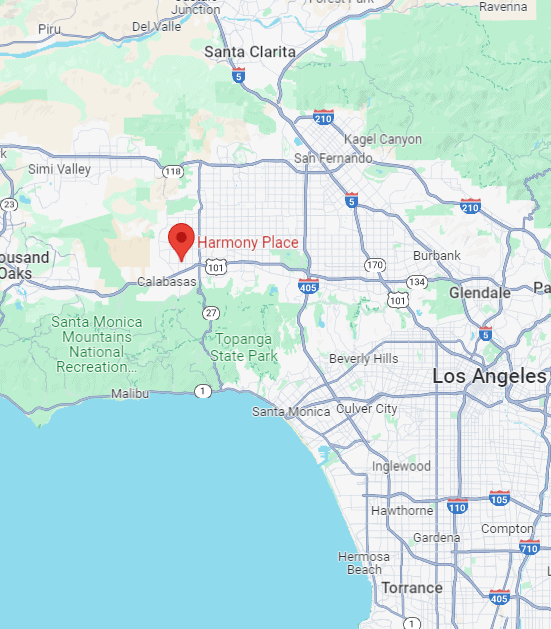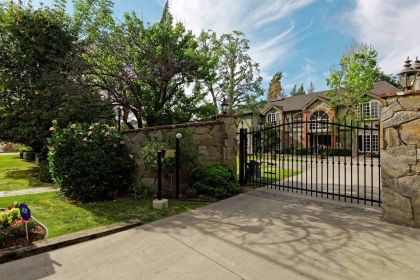Cognitive Behavioral Therapy (CBT) Addiction Treatment in Los Angeles, CA
What is Cognitive Behavioral Therapy?
Cognitive behavioral therapy (CBT) is a structured, time-limited psychotherapy that can positively affect your life. CBT focuses on mindfulness-based therapy, changing patterns of thinking and behavior to address a variety of cognitive health conditions, including depression, anxiety, OCD, ADHD, PTSD, and more. It’s convenient and has helped so many people regain their well-being.
CBT helps you learn to recognize and challenge negative thoughts and behaviors, replacing them with healthier alternatives. You can develop coping skills and improve emotional regulation by utilizing cognitive restructuring and behavioral activation methods. This evidence-based approach is widely used in individual and group therapy settings, making it a versatile and practical treatment option.
Harmony Place in Los Angeles offers evidence-based CBT programs designed to help individuals overcome addiction and co-occurring mental health disorders. Our CBT specialists and licensed addiction therapists use proven techniques to help clients recognize harmful thought patterns, build resilience, and create lasting change through compassionate, individualized care.
As one of Southern California’s leading rehab centers, Harmony Place integrates cognitive behavioral therapy in Los Angeles within every level of care—residential treatment, PHP, IOP, and outpatient therapy. Each client receives a personalized CBT treatment plan that promotes emotional stability and long-term recovery. Whether you’re seeking a Los Angeles CBT therapist for addiction or mental health, our programs offer effective, holistic healing in a supportive environment.
Pros and Cons of CBT for Addiction Treatment
Cognitive Behavioral Therapy (CBT) offers a structured approach to addiction treatment, but like any method, it has both advantages and limitations.
Pros:
- Evidence-Based – CBT is supported by research as an effective treatment for many types of addiction
- Focuses on Skills – Teaches coping strategies, problem-solving, and relapse prevention techniques
- Addresses Underlying Thoughts – Helps individuals identify and change harmful thought patterns that drive addictive behavior
- Flexible Format – Can be delivered individually, in groups, or online
- Supports Long-Term Recovery – Encourages self-awareness and behavioral change beyond therapy sessions
Cons:
- Requires Commitment – Success depends on active participation and practicing skills outside sessions
- May Not Be Enough Alone – Severe addictions or co-occurring disorders may require additional therapies or medications
- Time-Intensive – Usually requires multiple sessions over weeks or months to see significant results
- Limited Immediate Relief – CBT focuses on long-term change rather than providing quick relief from withdrawal symptoms or cravings
How Does CBT Work for Addiction?
Cognitive Behavioral Therapy (CBT) is a widely used approach for treating addiction because it addresses both the thoughts and behaviors that contribute to substance use or compulsive behaviors. CBT works by helping individuals identify negative thought patterns, triggers, and beliefs that lead to addictive behavior. Once these patterns are recognized, the therapist helps the person develop healthier coping strategies and problem-solving skills.
CBT also focuses on building awareness of high-risk situations and teaching techniques to manage cravings and avoid relapse. Through structured sessions, individuals learn to replace harmful behaviors with positive alternatives, improve emotional regulation, and set realistic goals for recovery. Over time, CBT strengthens resilience and self-control, making it easier to maintain long-term sobriety and improve overall mental health.
CBT can be effective for a wide range of addictions, including substance use disorders such as alcohol, opioids, stimulants, and nicotine, as well as behavioral addictions like gambling, internet use, and compulsive eating. The core principle of CBT, identifying and changing harmful thought patterns and behaviors, applies to nearly any addiction where habits and triggers play a role.
The effectiveness of CBT can vary depending on the severity of the addiction, the presence of co-occurring mental health disorders, and the individual’s commitment to therapy. In many cases, CBT is most effective when combined with other treatments such as medication-assisted therapy, support groups, or holistic approaches, providing a comprehensive strategy for recovery.
Who is Cognitive Behavioral Therapy Best For?
Cognitive Behavioral Therapy is best for individuals who are motivated to understand and change the thoughts and behaviors that contribute to their addiction. It works well for people struggling with substance use disorders, including alcohol, opioids, stimulants, and nicotine, as well as behavioral addictions such as gambling, overeating, or internet use.
CBT is particularly effective for those who experience co-occurring mental health conditions like anxiety, depression, or PTSD, because it helps develop coping skills and emotional regulation. Individuals who are willing to actively participate in therapy, practice strategies outside of sessions, and engage in self-reflection often see the greatest benefits. Overall, CBT is suitable for anyone seeking structured, evidence-based methods to manage triggers, reduce cravings, and maintain long-term recovery.
What Happens During CBT Treatment?
During Cognitive Behavioral Therapy for addiction, sessions are structured to help individuals understand and change the thoughts and behaviors that contribute to substance use or compulsive activities. The therapist begins by assessing the individual’s patterns, triggers, and high-risk situations. Together, they identify negative thought patterns and beliefs that fuel addictive behavior.
Sessions often include learning coping strategies to manage cravings, developing problem-solving skills, and practicing techniques to handle stress and emotional challenges without resorting to substance use. Individuals may also engage in role-playing, journaling, or homework assignments to reinforce skills learned in therapy. Over time, CBT helps participants build self-awareness, improve decision-making, and develop healthier habits, supporting long-term recovery and reducing the risk of relapse.
How Do I Know CBT is Working?
You can determine if CBT is working for addiction by observing changes in both thoughts and behaviors over time. Signs of progress often include reduced cravings, better coping with triggers, and fewer instances of substance use or addictive behavior.
Other indicators that CBT is effective include improved emotional regulation, increased self-awareness, and the ability to recognize and challenge negative thought patterns. You may also notice positive changes in daily routines, relationships, and overall quality of life. Regularly discussing progress with your therapist and tracking behaviors or triggers can provide concrete evidence that CBT strategies are taking effect and supporting long-term recovery.
How Long Does CBT Treatment Last?
The length of Cognitive Behavioral Therapy treatment for addiction can vary depending on the severity of the addiction, individual goals, and treatment setting. Typically, outpatient CBT programs last between 8 and 20 weekly sessions, with each session lasting 45 to 60 minutes.
Some individuals may require longer-term therapy if they have co-occurring mental health conditions or a history of chronic addiction. Shorter, focused CBT programs may be used for mild addictions or as part of a broader treatment plan. Progress is regularly reviewed, and therapy may be extended or supplemented with other forms of treatment to ensure the individual gains the skills and support needed for lasting recovery.
How to Choose the Best CBT Treatment for Addiction in Los Angeles, CA
Choosing the best Cognitive Behavioral Therapy treatment for addiction in Los Angeles, CA requires careful evaluation of several key factors to ensure the program meets your specific needs. Start by looking for licensed therapists or clinics with experience in addiction treatment and evidence-based CBT programs. Consider whether the treatment is offered individually, in groups, or a combination, depending on your learning style and comfort level.
It is important to assess the program’s approach to co-occurring mental health conditions, as integrated care often leads to better outcomes. Check the frequency and duration of sessions to make sure they align with your schedule and recovery goals. Additionally, consider the overall environment and support systems, including access to peer groups, counseling, and relapse prevention resources. Finally, review the costs and insurance coverage to ensure the program is financially feasible. Choosing a program that is reputable, comprehensive, and tailored to your needs can significantly improve your chances of achieving long-term recovery.
Are There Differences Between Cognitive Behavioral Therapy and Dialectical Behavior Therapy?
There are significant differences between cognitive behavioral therapy (CBT) and dialectical behavior therapy (DBT). While both therapies focus on changing negative thought patterns, DBT incorporates strategies for emotional regulation, distress tolerance, and interpersonal effectiveness, making it particularly effective for individuals with borderline personality disorder.
In the debate of DBT vs CBT, CBT primarily targets the relationship between thoughts, feelings, and behaviors, emphasizing cognitive restructuring. In contrast, DBT adds a component of dialectical thinking, balancing acceptance and change, and includes mindfulness practices. This will help individuals manage intense emotions and improve relationships.
Statistics and Info on Cognitive Behavioral Therapy (CBT) in Southern California
In Southern California, the number of people using dialectical behavior therapy (DBT), a form of CBT, is increasing. Nationally, DBT is a widely used therapy, effective for treating borderline personality disorder and other conditions involving emotional regulation. According to recent data, thousands of individuals across the USA utilize DBT for mental health disorders each year.
Specifically, DBT addresses a variety of mental health issues, including depression, anxiety, and eating disorders. In Southern California, the use of DBT has expanded, reflecting the region’s diverse and extensive mental health treatment landscape. Beyond treating mental health disorders, DBT is also used for other purposes, such as helping individuals develop better interpersonal skills and coping mechanisms. The comprehensive approach of DBT, which includes individual therapy, group skills training, and phone coaching, makes it a versatile and practical treatment option (ABCT).
What Are the Success Rates of CBT Programs in Los Angeles, CA?
Cognitive behavioral therapy (CBT) programs have high success rates, with studies showing significant improvement in mental health conditions, as well as when in addiction therapy. You will find that CBT is particularly effective in cognitive behavior therapy in Los Angeles, helping individuals develop coping skills and achieve radical acceptance.
CBT programs often result in long-term positive outcomes for individuals dealing with depression, anxiety, OCD, ADHD, PTSD, and other conditions. By focusing on cognitive restructuring and behavioral changes, these programs enable you to manage your symptoms better and enhance your overall well-being. The success of CBT lies in its structured approach, which equips you with practical coping skills and promotes radical acceptance of your experiences.
How Long Does an Average CBT Program Last for Treating Addiction?
The duration of CBT therapy varies, but you can typically expect to engage in sessions for 12 to 20 weeks. You will find tailored CBT therapy programs incorporating mindful awareness and validation strategies at Harmony Place Addiction Recovery in Los Angeles.
CBT therapy in Los Angeles at our facility, Harmony Place Addiction Recovery, focuses on your individual needs, ensuring that the therapy duration aligns with your goals and progress. With an emphasis on core mindfulness and emotion regulation skills, you will learn practical coping tools to manage your mental health conditions. CBT’s structured yet flexible nature allows you to achieve meaningful improvements within a few months.
We Will Check Your Insurance
What Is a Cognitive Behavioral Therapy (CBT) Treatment Program in Los Angeles?
A cognitive behavioral therapy (CBT) treatment program in Los Angeles is a structured and evidence-based approach created to help you manage and overcome mental health issues and addiction. These programs focus on identifying and changing negative thought patterns and behaviors, providing you with practical coping skills, emotional regulation, and self-soothing techniques.
At our facility, Harmony Place Drug and Alcohol Treatment Center, you will receive comprehensive CBT therapy in Los Angeles tailored for you. Located in the heart of SoCal, our facilities serve various areas, including Pasadena, Malibu, and Beverly Hills. Harmony Place offers a supportive environment to engage in individualized and group therapy sessions, ensuring a holistic approach to your CBT-focused recovery.
What Are the Therapeutic Techniques for a CBT Program in Los Angeles?
Cognitive behavioral therapy (CBT) includes various therapeutic methods aimed at helping individuals deal with and manage mental health issues. One of the main techniques is cognitive restructuring, which involves recognizing and challenging negative thinking patterns to replace them with positive ones. This approach helps individuals change distorted thinking and improve their emotional well-being.
Another significant technique in CBT involves improving interpersonal communication skills. Quality time and good communication skills are crucial for maintaining healthy relationships and managing social anxiety. Techniques such as role-playing, assertiveness training, and active listening exercises are commonly used to enhance one’s ability to express oneself clearly and confidently. These therapeutic techniques empower one to develop practical coping skills, improve emotional regulation, and foster better interpersonal relationships.
Do Mental Health Programs Offer Cognitive Behavioral Therapy (CBT) During Treatment?
Yes, many mental health programs in Southern California offer cognitive behavioral therapy (CBT) to help individuals manage and overcome various mental health issues. These programs provide structured and evidence-based approaches to treatment. Whether you are near the Hollywood Walk of Fame, the serene Santa Monica Beach, or the vibrant neighborhoods of the Valley, you will find numerous options for CBT.
Harmony Place Rehab Center is one of the specialized centers in SoCal that offers comprehensive mental health programs, including CBT and dialectical behavior therapy (DBT). At Harmony Place, you can receive tailored treatment to address your specific needs, benefiting from the expertise of professionals committed to your well-being. Our facilities provide a supportive environment where you can improve your mental health and develop effective coping skills.
Do Health Insurance Policies Cover CBT in Los Angeles, CA?
Commercial health insurance plans often cover cognitive behavioral therapy (CBT) in Greater Los Angeles. Many insurance plans include mental health services, ensuring you can access the therapy you need without a significant financial burden. Coverage typically includes individual therapy, group sessions, and other related services.
In Greater Los Angeles, you will find numerous CBT providers near serene and therapeutic locations, from Pacific Palisades, which has stunning views of the Pacific Ocean, to the bustling campuses of UCLA and USC. Insurance coverage allows you to seek treatment at various reputable facilities across the region, offering options for you no matter where you are in your walk of life.
Common Disorders Treated With a Los Angeles CBT Therapist
Cognitive behavioral therapy (CBT) is a method proven to help you understand and learn to change negative thought patterns and behaviors, providing relief and coping strategies for various disorders. The following list includes some common disorders treated with CBT in LA, but it is just a tiny example of treatable diagnoses.
In Los Angeles, you can find CBT for depression, anxiety, obsessive-compulsive disorder (OCD), attention-deficit/hyperactivity disorder-ADHD, post-traumatic stress disorder -PTSD, and many more. With numerous qualified therapists and treatment centers in the area, you can access tailored support and effective therapeutic interventions.

CBT Programs for Anger Problems
CBT programs for anger problems focus on developing effective strategies for managing emotions and reactions. You learn to identify the triggers and underlying thoughts contributing to your anger through distress tolerance and behavioral analysis. These programs also teach you coping skills and techniques to respond more calmly and constructively.
By participating in CBT for anger management, you gain tools for emotional regulation and improved interpersonal effectiveness. The structured approach of CBT allows you to break the cycle of anger and develop healthier ways to express and manage your emotions, leading to a more balanced and peaceful life.
CBT Programs for Bipolar Disorder
CBT programs for bipolar disorder are designed to help you manage mood swings and maintain stability in your daily life. Through cognitive behavioral therapy, you will learn crisis survival skills to handle extreme mood changes and stressful situations effectively. These skills enable you to navigate the challenges of bipolar disorder with greater resilience and control.
Self-validation is a crucial component of CBT for bipolar disorder. You will work on recognizing and affirming your feelings and experiences, which helps build a stronger sense of self-worth and emotional stability. By integrating these techniques, CBT programs provide comprehensive support for managing bipolar disorder and improving your overall quality of life.
CBT Programs for Substance Misuse
CBT programs for substance misuse focus on equipping you with the tools necessary to overcome addiction and maintain long-term sobriety. By incorporating crisis survival skills, these programs help you manage triggers and stressful situations without resorting to substance use. You will learn practical strategies to handle cravings and develop healthier coping mechanisms.
Dialectics, or the art of balancing opposing viewpoints, is also a key element in CBT for substance misuse. This approach helps you understand and resolve internal conflicts that may contribute to your addiction. By integrating dialectics and cognitive-behavioral techniques, CBT programs provide a comprehensive framework for addressing substance misuse and supporting your journey toward recovery.
CBT Programs for Depression
CBT programs for depression utilize various behavioral therapy techniques to help you manage and feel better overall. By focusing on reversing negative thought patterns and behaviors, these programs empower you to take control of your mental health. You will discover strategies to challenge and reframe unhelpful thoughts, leading to improved mood and functioning.
These programs often include activities that promote engagement in pleasurable and meaningful tasks, which can counteract the withdrawal and inactivity usually associated with depression. Through consistent application of behavioral therapy techniques, discover a structured and effective way to conquer depression and improve your overall well-being with CBT programs.
CBT Programs for Anxiety and Panic Attacks
CBT programs for anxiety and panic attacks help you manage and reduce symptoms through structured interventions. These programs teach you how to identify and challenge the irrational thoughts that fuel anxiety and panic, replacing them with more balanced and realistic perspectives. Applying these techniques allows you to gain greater control over your emotional responses.
Validation principles are crucial in these programs, helping you acknowledge and accept your feelings without judgment. This self-validation reduces the intensity of anxiety and panic attacks, making it easier for you to implement coping strategies. Through a combination of cognitive restructuring and validation principles, CBT programs provide a comprehensive approach to managing anxiety and panic attacks.
CBT Programs for Hoarding
CBT programs for hoarding are tailored to help you address the complex behaviors and thoughts associated with hoarding disorder. These programs often incorporate schema-focused therapy, which aims to identify and change deep-seated patterns or schemas contributing to hoarding behaviors.
Schema-focused therapy within CBT programs helps you develop healthier coping mechanisms and organizational skills. You will learn practical strategies to manage possessions and reduce clutter, improving your living environment and quality of life. Through this comprehensive approach, CBT programs offer effective support for overcoming hoarding disorder.
CBT Programs for OCD
CBT programs for obsessive-compulsive disorder (OCD) help you manage and reduce the symptoms of OCD through evidence-based strategies. These CBT for OCD programs often incorporate dialectical thinking, which involves balancing acceptance and change. By learning to accept your intrusive thoughts without judgment, you can reduce the anxiety and compulsion to perform certain behaviors.
Dialectical thinking helps you challenge and reframe the rigid, black-and-white thinking patterns often accompanying OCD. Through CBT, you will develop healthier ways of thinking and coping, ultimately gaining greater control over your obsessive and compulsive behaviors. This comprehensive approach provides effective tools to manage OCD and improve your overall well-being.
CBT Programs for Eating Problems
CBT programs for eating problems are designed to help you address and manage disordered eating behaviors and thoughts. These programs focus on identifying and challenging the negative beliefs and patterns contributing to unhealthy eating habits. By learning to reframe these thoughts and develop healthier coping strategies, you can improve your relationship with food and your body.
In addition to cognitive restructuring, CBT for eating problems often includes behavioral interventions that promote balanced eating and self-care. These techniques empower you to make positive changes and maintain a healthier lifestyle. Through a structured and supportive approach, CBT programs provide effective tools for overcoming eating problems and enhancing your overall well-being.

Addiction Treatment Centers in Los Angeles, CA that Offer Cognitive Behavioral Therapy Programs
Yes, there are several cognitive behavioral therapy (CBT) addiction treatment centers in Greater Los Angeles that offer a variety of treatment options. These facilities accept insurance, ensuring accessible care for those in need. You can find comprehensive treatment programs, including a partial hospitalization program (PHP) with housing, an intensive outpatient program (IOP), medication-assisted treatment (MAT), and standard outpatient services.
For more information about the CBT addiction treatment programs we offer at our CBT Centers, call us at (855) 652-9048.
How to Find Cognitive Behavioral Therapy (CBT) Centers in SoCal
Finding a cognitive behavioral therapy (CBT) center in Southern California (SoCal) can be straightforward if you follow these steps: research online directories, read reviews, ask for referrals to CBT specialists from healthcare providers, and verify the credentials and specializations of therapists.
- Search Online: Start by using search engines like Google. Use specific keywords to find centers that specialize in your needs. For example, search for “CBT for depression in SoCal,” “CBT for OCD in Los Angeles,” “CBT for ADHD near Santa Monica Beach,” or “CBT for PTSD in the Valley.”
- Check Reviews: Peruse online reviews on Yelp, Google Reviews, and Healthgrades. These reviews provide insights into the quality of care and patient experiences at different CBT centers.
- Visit Insurance Websites: If you have commercial health insurance, visit your provider’s website. They often have directories of in-network mental health professionals and treatment centers.
- Consult Your Primary Care Doctor: Your primary doctor can provide referrals to reputable CBT centers and therapists in the area. They can help you find specialists for CBT for depression, OCD, ADHD, and PTSD.
- Contact Universities: Contact local universities like UCLA and USC, which often have psychology departments and clinics that offer CBT. They may also provide referrals to affiliated centers or research programs.
- Explore Professional Directories: Use professional directories like Psychology Today, which allows you to filter searches by location, specialization, and insurance coverage.
- Community Resources: Check community mental health organizations and local support groups. They often have resources and referrals for CBT services in your area.
By following these steps and utilizing targeted searches like “CBT for depression” and “CBT for PTSD,” you can find a suitable cognitive behavioral therapy center in SoCal that meets your specific needs.
The specific costs can differ depending on the location, with facilities in areas like Pacific Palisades, near the Pacific Ocean, and around UCLA and USC potentially being higher. It’s important to contact individual centers to get detailed pricing and verify if your insurance plan covers the therapy.
Harmony Place East
22913 Burbank Blvd.
Woodland Hills, CA 91367
Harmony Place
23041 Hatteras St.
Woodland Hills, CA 91367
Valley Restoration Center
22900 Ventura Blvd, STE 314,
Woodland Hills, CA 91364
What Are the Different Types of CBT in Los Angeles, CA?
Cognitive behavioral therapy (CBT) in Los Angeles, often referred to as the Golden State offers a range of specialized approaches to cater to various mental health needs. Each type of CBT is designed to address specific issues, providing you with tailored strategies. The following list includes examples of different types of CBT available in LA, but it is not exhaustive.
ACT: Acceptance and Commitment Therapy
Acceptance and commitment therapy (ACT) helps you understand your thoughts and feelings over fighting or feeling guilty for them. ACT focuses on mindfulness and behavioral changes, encouraging you to commit to actions that align with your values. This approach helps you develop psychological flexibility, enabling you to handle life’s challenges more effectively.
DBT: Dialectical Behavior Therapy
Dialectical behavior therapy (DBT) enhances cognitive behavioral therapy (CBT) by blending acceptance with change-oriented strategies. It equips individuals to handle overwhelming emotions and foster better relationships through four core skills: mindfulness, emotional regulation, distress tolerance, and interpersonal effectiveness. Beneficial for those with borderline personality disorder and self-destructive behaviors, DBT stands out in its approach compared to traditional CBT.
MBCT: Mindfulness-Based Cognitive Therapy
Mindfulness-based cognitive therapy (MBCT) combines cognitive behavioral therapy principles with mindfulness practices. This approach helps you become more aware of your thoughts and feelings in the present moment without judgment. By integrating mindfulness, MBCT aims to prevent relapse of depression and other mental health issues, promoting emotional regulation and overall well-being.
REBT: Rational Emotive Behavior Therapy
Rational-emotive behavior therapy (REBT) helps you identify and change irrational beliefs that cause emotional distress. By challenging these beliefs and replacing them with more rational and constructive thoughts, REBT enables you to develop healthier emotional responses and behaviors, improving your overall mental well-being. This type of therapy can also be used in CBT for ADHD treatment plans.
How Much Do Cognitive Behavioral Therapy (CBT) Programs Cost Los Angeles, CA?
In Southern California, cognitive behavioral therapy (CBT) and counseling costs can vary widely. Outpatient rehab programs typically cost around $5,000 for three months, while intensive outpatient care ranges from $15,000 to $19,500 for 30 days. Costs may be higher in prime locations such as DTLA, near popular spots where the Lakers and Dodgers play, or affluent areas like Pacific Palisades.
Factors such as the therapist’s experience, the facility’s reputation, and the specific services offered can also influence the price. Facilities near iconic locations like the Pacific Ocean, UCLA, and USC may charge more. It’s essential to contact individual centers to get detailed pricing and verify if your insurance plan covers the therapy.
How Much Does a CBT Session Cost in Los Angeles Without Health Insurance Coverage?
In Los Angeles, the cost of a single cognitive behavioral therapy (CBT) session without health insurance support typically ranges from $100 to $250 per hour. Factors such as the therapist’s qualifications, location, and the type of facility can influence the price.
Given LA’s diverse environment, therapy sessions can be found in settings ranging from the bustling city life of DTLA to the tranquil, sunny beaches of Santa Monica or even the serene desert landscapes. It’s essential to contact therapists directly to confirm their rates and any available sliding scale options.
How Much Does a CBT Session Cost in Los Angeles With Health Insurance Coverage?
With health insurance support, individuals seeking cognitive behavioral therapy (CBT) in Los Angeles can benefit from significantly reduced costs, with session fees typically ranging from $20 to $50 per session. The exact dollar amount will depend on the specific insurance plan and coverage details. This financial assistance ensures access to crucial mental health support without excessive financial strain.
In a city known for its sunshine, sand, and nearby desert landscapes, as well as iconic locations like the Hollywood Bowl and movie studios, various therapists offer CBT. It’s vital to check in with your insurance provider for specifics on coverage and any out-of-pocket expenses.
Admissions Process for CBT in Los Angeles at Harmony Place Treatment
The admissions process for cognitive behavioral therapy in Los Angeles, at Harmony Place involves several steps to ensure you receive the appropriate care. Initially, you will undergo a comprehensive assessment to evaluate your mental health and substance use history. This evaluation can determine the most suitable treatment plan tailored to your needs.
Following the free addiction assessment, the admissions team will work with you to check your insurance coverage for CBT treatment and discuss financial options. Once approved, you can begin your customized CBT-focused treatment program, which often includes individual counseling, group therapy, and other therapeutic interventions designed to support your recovery journey.
Start CBT in Los Angeles with a Trusted Rehab Center
Finding the right CBT in Los Angeles can be the turning point in your recovery journey. At Harmony Place, our CBT specialists guide you through a personalized path to healing that addresses addiction, mental health challenges, and the root causes behind them. With our integrated treatment approach, you’ll gain the tools to think differently, feel stronger, and live free from addiction.
If you or a loved one is searching for compassionate, professional cognitive behavioral therapy in Los Angeles, our team is ready to help. Contact Harmony Place today to speak with a Los Angeles CBT therapist and begin your recovery journey. Take the first step toward healing in a safe, supportive setting with one of California’s most trusted treatment centers.
Addiction Therapy Services in Los Angeles
At Harmony Place, our therapy programs help clients understand the roots of addiction and build lasting coping skills. We offer a range of therapeutic modalities, including individual and group counseling, CBT, DBT, and motivational enhancement therapy. Learn more about our therapy services and costs through the links below.
- Inpatient Rehab Los Angeles
- Intensive Outpatient Program Los Angeles
- Evening Intensive Outpatient Program
- Medication Assisted Treatment Los Angeles
- Outpatient Rehab Program Los Angeles
- Los Angeles Partial Hospitalization Program
- Medically Assisted Detox LA
- Sober Living Homes and Halfway Houses
- Clinical Care Los Angeles
- Family Therapy Rehab Program
- Couples Rehab Los Angeles
- Men’s Addiction Rehab California
- Women’s Rehab Center SoCal
- Addiction Treatment for Veterans
- Short-Term Addiction Rehab
- Long-Term Addiction Rehab
- Private Luxury Rehab Los Angeles
- Faith-Based Rehab Programs
- Non-Faith-Based Rehab
- Rehab for Professionals LA
- Rehab Aftercare Alumni Programs
Statistics and Info on Cognitive Behavioral Therapy (CBT) in Los Angeles
In Southern California, numerous individuals access mental health services, including cognitive behavioral therapy (CBT), through programs supported by state initiatives aimed at improving behavioral health services, according to the SAMHSA. These programs provide support for those dealing with mental health conditions, offering structured therapeutic interventions that can lead to improvements in mental health recovery outcomes.
Nationally, CBT is a widely utilized form of therapy for various mental health conditions. The National Institute of Mental Health (NIMH) reports that millions of Americans receive CBT each year as part of their treatment plans for disorders like depression, anxiety, and PTSD. This form of therapy is highly regarded for its effectiveness in helping individuals develop coping strategies and modify dysfunctional thinking patterns.
In California, the Department of Health Care Services (DHCS) has been working to expand access to behavioral health services, which includes CBT, for cognitive conditions such as addiction, depression, anxiety, and other mental health issues. This initiative aims to provide treatment to tens of thousands of people annually, addressing the growing demand for mental health and addiction CBT services and improving the mental well-being of the population.
CBT is also utilized for non-clinical issues such as stress management, improving interpersonal skills, and enhancing coping strategies. These applications are part of broader efforts to promote mental well-being and resilience across various populations. The Department of Health Care Services reports that Medi-Cal, California’s Medicaid program, covers mental health services for millions of residents, reflecting significant expansions in services to meet the increasing CBT needs of Californians. As a result, California has one of the highest utilizations of mental health services in the nation, with comprehensive outpatient and inpatient programs, crisis intervention, and community-based services being highlighted by SAMHSA.


















